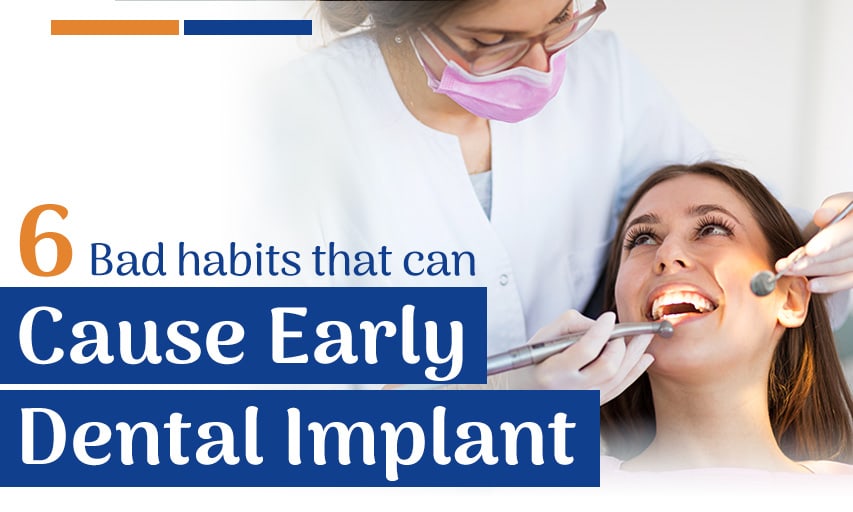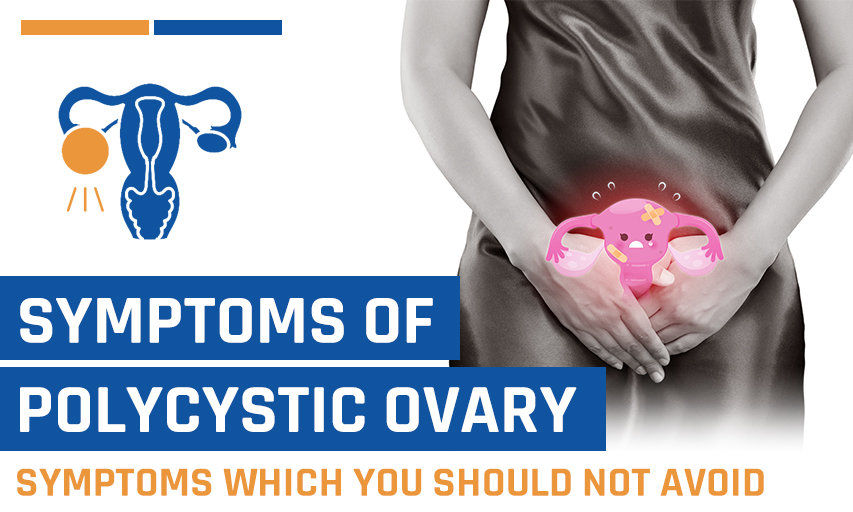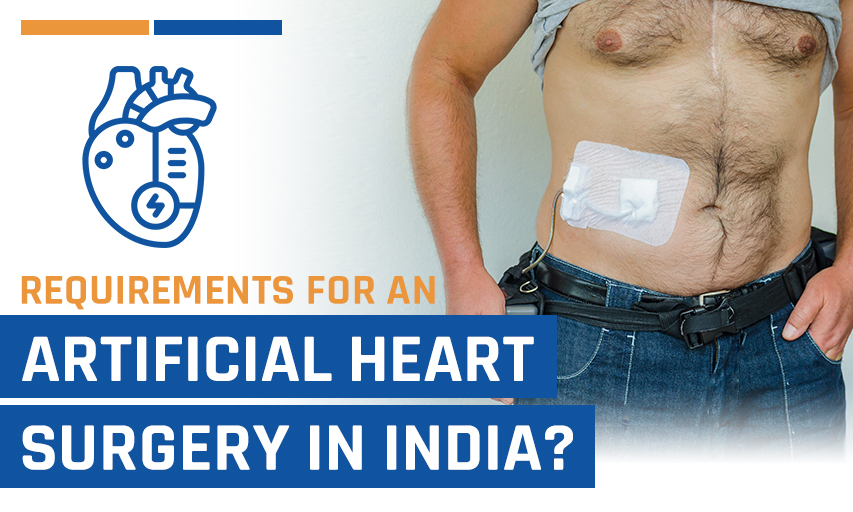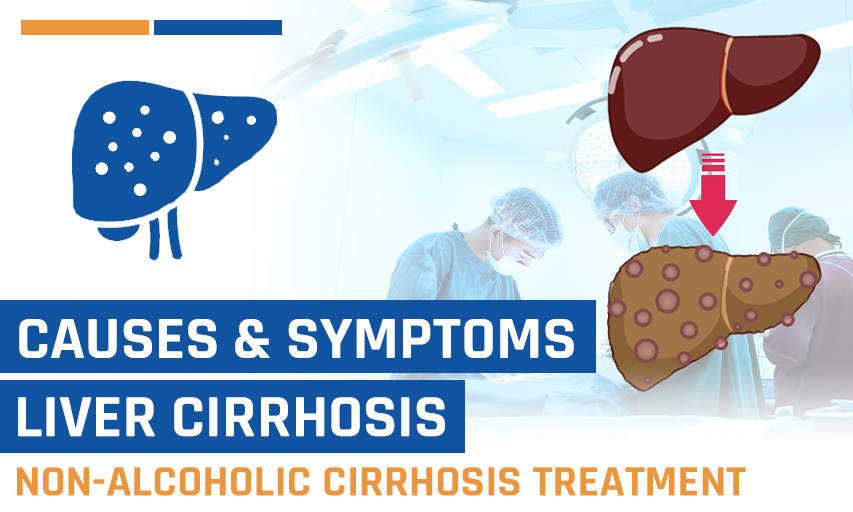6 Bad Habits That Can Cause Early Dental Implant Failure
It might be devastating to lose a tooth, but with dental implants, you feel like you have a second shot at good oral health. Dental implants are the most effective way to replace missing teeth since they are the most secure, comfortable, and natural-feeling option. You'll wonder why you wasted time without them previously once you have them.
What is a Dental Implant?
An oral surgeon will perform a dental implant treatment when they place artificial tooth roots in your jawbone. By fusing with the bone, these implants enable the implantation of crowns, which serve as replacement teeth. Dental implants may be possible if one or more of your permanent teeth are lost. They are created to look, feel, and function like your natural teeth.
As dental implants offer various benefits, it has become a cutting-edge method of replacing missing teeth. They are the ones that look and function most like your natural teeth, and they can outlast your real teeth for a lifetime. ICureIndia assists you with advanced dental implants at an affordable cost of Dental Implants in India.
How to Identify a Failing Implant
The main symptom of improper bone growth around an implant or an early dental implant failure is frequent mobility. An implant that has failed to integrate will eventually feel shaky and could move when you chew or speak. Initially, the movement might be small and only noticeable by a dentist. An implant that has malfunctioned will always be moveable.
Pain, edema, or infection indicates that a dental implant has lost osseointegration, but that isn't always the case. Your dentist can suggest an X-ray to evaluate your bone growth if they detect that your implant is moving about. An X-ray shows that a failing dental implant may have severe bone loss surrounding the metal part.
Bad Habits You Must Avoid When Using Dental Implants
We firmly advise you to give up some undesirable behaviors to assist you in benefiting from dental implants or preventing early dental implant failure for as long as feasible. Smoking is one of the destructive behaviors that might induce implant failure and lead to implant loss.
1. Smoking and Drinking Alcohol
Smoking is among the worst vices to give up before getting dental implants. First off, smoking can impede the recovery from implant surgery. The healing process is slowed because nicotine decreases the blood supply to soft tissue. Smoking hinders osseointegration, which affects how well the overall procedure heals because the bone surrounds the implant. Smoking can also interfere with the bone graft's healing ability and cause early dental implant failure if you need one before the implant implantation. A successful bone graft is required to ensure that your dental implants last. You can read on, how long dental implants last? A compromised healing process harms dental implants' long-term success.
Smoking not only hinders healing, but it also raises the risk of periodontal disease. A dry mouth from smoking means plaque and germs linger in the mouth longer than usual, a primary factor in gum disease. Gum disease can destroy the jawbone required to hold implants.
Alcohol use is another unhealthy habit that can eventually result in implant failure. Alcohol intake can harm your gums, including developing oral cancer. For instance, drinking reduces the amount of blood that reaches your gums. Therefore, if you drink alcohol after an implant, your gums and bones won't recover and may even sustain irreparable harm. In addition to lowering white blood cell counts, alcohol can impair your body's ability to fight bacterial infections. Additionally, alcohol affects the power of your body to produce the proteins needed for healing.
Alcohol can impede the healing process following implant surgery and worsen dehydration and dry mouth, resulting in gum disease and early dental implant failure. Alcohol should be avoided while you recover following implant surgery and only be consumed in moderation afterward.
2. Chewing on Hard Objects or Using Your Teeth as Tools
You shouldn't treat your artificial teeth differently because you no longer have natural ones. This implies that you never use your teeth for anything other than eating. For instance, if you bite your fingernails or use your teeth to rip open packages, pressure will be placed on them, which is inappropriate. You shouldn't chew on complex objects like ice, hard candy, or fingernails.
No matter if one has natural or artificial teeth, this is one harmful behavior that dentists would like everyone to cease. Using your implants (and natural teeth) as tools, you risk seriously harming your smile and having to make an emergency dentist appointment. Your teeth are not made to handle the pressure required to open packages, containers, or even bottles like everyday objects like scissors, pliers, or bottle openers. Even while tooth enamel is known for being incredibly resilient, it can chip, crack, or even break under intense strain causing early dental implant failure. It is advisable to take a few minutes and choose the appropriate tool to preserve your implants in good condition.
3. Consuming Too Much Sugar
A high-sugar diet increases oral bacteria, which can lead to gum disease if you don't brush and floss correctly and frequently. As you are already aware, gum disease can lead to bone loss, leading to implant failure. Maintain a nutritious diet and consume sugary foods and beverages in moderation for optimal outcomes. Your heart and implants will appreciate it.
4. Not Maintaining Proper Oral Hygiene
Even if you don't have natural teeth, brushing your teeth is still very important. Plaque, germs, and food particles are removed from your teeth and mouth by brushing. Brushing your teeth twice a day is one of the most excellent methods to stop bad breath and gum disease and make sure your implants and restorations last longer. You should still floss even if you have dental implants, too! Whether you only have implants or a few natural teeth left, it's crucial to floss around the implant to make sure no bacteria linger there to cause early dental implant failure. After receiving dental implants, many patients find using a water flosser is preferable because it is simpler to maneuver.
5. Skipping Regular Dental Consultations
Receiving routine professional cleanings is another essential strategy for preventing gum disease and promoting the longevity of dental implants. Even if you brush and floss regularly, you'll probably start to develop tartar, which is a hard deposit on your teeth that can harbor oral bacteria and worsen gum disease.
These deposits are removed by professional cleanings every six months, allowing you to maintain healthy gums around the implant. Additionally, it enables us to identify any issues in advance, preventing the implant from being lost.
6. Eating popcorn
This salty, buttery snack may be your favorite, but it may also lead to implant failure. Unpopped kernels have been known to get stuck below the gum line and harm the tissue below, putting an implant or even natural teeth at risk of being damaged when they bite. Giving yourself a treat once in a while is acceptable, regularly eating popcorn can harm the implants. Have control of your popcorn consumption and beware of unpopped kernels.
Conclusion
Talk to your dentist before getting your implants placed to determine if any risk factors could affect their success. Always let your dentist or dental expert know if your health or medication regimen changes because they can impact healing and osseointegration and further cause an early dental implant failure. Be satisfied without any worries after preferring dental implants in India.
Maintaining good dental hygiene is essential for avoiding implant issues. While your new tooth erupts, brushing twice daily and using an antibiotic mouthwash can help keep bacteria at bay and your gums healthy.




















Be First To Comment
Leave a Comment